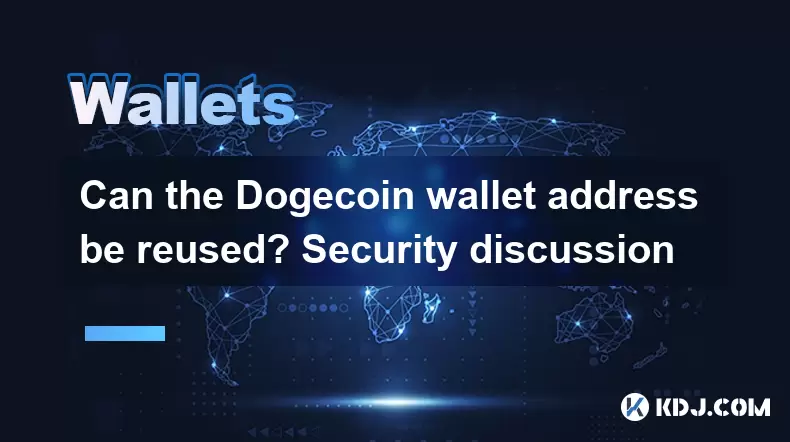-
 Bitcoin
Bitcoin $115000
0.12% -
 Ethereum
Ethereum $3701
4.50% -
 XRP
XRP $3.081
2.99% -
 Tether USDt
Tether USDt $0.0000
-0.01% -
 BNB
BNB $767.9
1.45% -
 Solana
Solana $169.5
3.13% -
 USDC
USDC $0.9999
0.01% -
 Dogecoin
Dogecoin $0.2106
4.30% -
 TRON
TRON $0.3334
1.62% -
 Cardano
Cardano $0.7564
2.54% -
 Stellar
Stellar $0.4165
0.76% -
 Hyperliquid
Hyperliquid $38.75
0.25% -
 Sui
Sui $3.593
3.00% -
 Chainlink
Chainlink $17.08
3.59% -
 Bitcoin Cash
Bitcoin Cash $573.6
4.35% -
 Hedera
Hedera $0.2508
-0.84% -
 Avalanche
Avalanche $23.07
6.46% -
 Ethena USDe
Ethena USDe $1.001
-0.02% -
 Litecoin
Litecoin $120.8
8.17% -
 UNUS SED LEO
UNUS SED LEO $8.943
-0.32% -
 Toncoin
Toncoin $3.400
-5.60% -
 Shiba Inu
Shiba Inu $0.00001255
1.54% -
 Uniswap
Uniswap $9.908
6.32% -
 Polkadot
Polkadot $3.718
2.10% -
 Monero
Monero $303.0
-0.74% -
 Dai
Dai $0.9999
-0.02% -
 Bitget Token
Bitget Token $4.392
0.91% -
 Cronos
Cronos $0.1403
6.31% -
 Pepe
Pepe $0.00001076
1.13% -
 Aave
Aave $267.2
1.80%
Can the Dogecoin wallet address be reused? Security discussion
Dogecoin wallet addresses can be reused, but doing so risks privacy and security; it's best to use a new address for each transaction to stay safe.
May 13, 2025 at 04:01 pm

Introduction to Dogecoin Wallet Addresses
When it comes to managing cryptocurrencies like Dogecoin, understanding the functionality and security of wallet addresses is crucial. A Dogecoin wallet address is a unique string of characters that serves as a destination for sending and receiving Dogecoin. One common question that arises among users is whether these addresses can be reused. In this article, we will delve into the specifics of Dogecoin wallet address reuse and discuss the security implications associated with it.
Understanding Dogecoin Wallet Address Reuse
Dogecoin wallet addresses can indeed be reused. This means that you can send and receive Dogecoin to the same address multiple times. However, there are important security considerations to keep in mind when deciding to reuse an address.
Security Risks of Reusing Dogecoin Wallet Addresses
Reusing a Dogecoin wallet address can expose you to several security risks. One of the primary concerns is privacy. When you reuse an address, it becomes easier for others to track your transactions and link them to your identity. This can be particularly problematic if you are trying to maintain anonymity in your cryptocurrency transactions.
Another significant risk is security. If an address has been used multiple times, it increases the chances that it could be compromised. For instance, if someone gains access to your private key, they could potentially drain all the funds associated with that address. Reusing addresses can make it easier for attackers to target you, as they have more data to work with.
Best Practices for Managing Dogecoin Wallet Addresses
To mitigate the risks associated with reusing Dogecoin wallet addresses, it is advisable to follow certain best practices. Here are some steps you can take to enhance your security:
- Use a new address for each transaction: This is the most effective way to maintain privacy and security. Many modern wallets, including those for Dogecoin, allow you to generate a new address for each transaction.
- Keep your private keys secure: Always store your private keys in a safe place, such as a hardware wallet or a secure offline storage solution. Never share your private keys with anyone.
- Monitor your transactions: Regularly check your transaction history to ensure that there are no unauthorized transactions. If you notice anything suspicious, take immediate action to secure your funds.
How to Generate a New Dogecoin Wallet Address
Generating a new Dogecoin wallet address is a straightforward process, but it varies depending on the wallet you are using. Here is a general guide on how to do it:
- Open your Dogecoin wallet: Launch the wallet application on your device.
- Navigate to the receive section: Look for an option labeled "Receive" or "Generate New Address."
- Generate a new address: Click on the option to generate a new address. Your wallet will provide you with a new Dogecoin address that you can use for your next transaction.
- Copy and use the new address: Copy the new address and use it to receive Dogecoin. Make sure to double-check the address to avoid any errors.
Conclusion on Dogecoin Wallet Address Reuse
While it is technically possible to reuse a Dogecoin wallet address, doing so can compromise your privacy and security. It is generally recommended to use a new address for each transaction to minimize these risks. By following best practices and understanding the implications of address reuse, you can better protect your Dogecoin holdings.
Frequently Asked Questions
Q: Can I use the same Dogecoin address for multiple transactions without any issues?
A: While you can technically use the same address for multiple transactions, doing so can compromise your privacy and security. It is recommended to use a new address for each transaction to maintain anonymity and reduce the risk of your funds being compromised.
Q: How can I tell if my Dogecoin wallet address has been compromised?
A: If you notice unauthorized transactions or if your balance decreases unexpectedly, it could be a sign that your wallet address has been compromised. Regularly monitoring your transaction history and keeping your private keys secure can help you detect and prevent such issues.
Q: Are there any tools or services that can help me manage multiple Dogecoin wallet addresses?
A: Yes, there are several wallet applications and services designed to help you manage multiple Dogecoin addresses. Wallets like Dogecoin Core, Exodus, and Trust Wallet allow you to generate new addresses easily and keep track of your transactions across multiple addresses.
Q: Is it possible to recover funds sent to a reused Dogecoin address if it gets compromised?
A: Recovering funds from a compromised address can be challenging and often depends on the specific circumstances. If you suspect that your address has been compromised, it is crucial to act quickly by moving your funds to a new, secure address and reporting the issue to the relevant authorities or platforms.
Disclaimer:info@kdj.com
The information provided is not trading advice. kdj.com does not assume any responsibility for any investments made based on the information provided in this article. Cryptocurrencies are highly volatile and it is highly recommended that you invest with caution after thorough research!
If you believe that the content used on this website infringes your copyright, please contact us immediately (info@kdj.com) and we will delete it promptly.
- Velo Universe, DEX, and DeFi Security: Navigating the Future of Decentralized Trading
- 2025-08-05 09:25:13
- Bitget Wallet Revolutionizes Solana with Gas-Free Transactions: A New Era for DeFi
- 2025-08-05 09:25:13
- Ozak AI, Crypto Boom, and ROI Potential: Is This the Next Big Thing?
- 2025-08-05 09:25:24
- Solana's ETF Hopes & the All-Time High Chase: Is SOL Set to Soar?
- 2025-08-05 09:25:24
- Coinbase's Brian Armstrong and the Art of Focused Work: A Deep Dive
- 2025-08-05 09:25:30
- Uniswap Price Prediction: Bullish Reversal on the Horizon?
- 2025-08-05 09:25:30
Related knowledge

How to add TRC20 token to Trust Wallet?
Aug 04,2025 at 11:35am
Understanding TRC20 and Trust Wallet CompatibilityTrust Wallet is a widely used cryptocurrency wallet that supports multiple blockchain networks, incl...

What is a watch-only wallet in Trust Wallet?
Aug 02,2025 at 03:36am
Understanding the Concept of a Watch-Only WalletA watch-only wallet in Trust Wallet allows users to monitor a cryptocurrency address without having ac...

Why can't I connect my Trust Wallet to a DApp?
Aug 04,2025 at 12:00pm
Understanding DApp Connectivity and Trust WalletConnecting your Trust Wallet to a decentralized application (DApp) is a common process in the cryptocu...

How to fix a stuck pending transaction in Trust Wallet?
Aug 03,2025 at 06:14am
Understanding Why Transactions Get Stuck in Trust WalletWhen using Trust Wallet, users may occasionally encounter a pending transaction that appears t...

What is a multi-coin wallet in Trust Wallet?
Aug 03,2025 at 04:43am
Understanding Multi-Coin Wallets in Trust WalletA multi-coin wallet in Trust Wallet refers to a digital wallet that supports multiple cryptocurrencies...

How to switch between networks in Trust Wallet?
Aug 02,2025 at 12:36pm
Understanding Network Switching in Trust WalletSwitching between networks in Trust Wallet allows users to manage assets across different blockchains s...

How to add TRC20 token to Trust Wallet?
Aug 04,2025 at 11:35am
Understanding TRC20 and Trust Wallet CompatibilityTrust Wallet is a widely used cryptocurrency wallet that supports multiple blockchain networks, incl...

What is a watch-only wallet in Trust Wallet?
Aug 02,2025 at 03:36am
Understanding the Concept of a Watch-Only WalletA watch-only wallet in Trust Wallet allows users to monitor a cryptocurrency address without having ac...

Why can't I connect my Trust Wallet to a DApp?
Aug 04,2025 at 12:00pm
Understanding DApp Connectivity and Trust WalletConnecting your Trust Wallet to a decentralized application (DApp) is a common process in the cryptocu...

How to fix a stuck pending transaction in Trust Wallet?
Aug 03,2025 at 06:14am
Understanding Why Transactions Get Stuck in Trust WalletWhen using Trust Wallet, users may occasionally encounter a pending transaction that appears t...

What is a multi-coin wallet in Trust Wallet?
Aug 03,2025 at 04:43am
Understanding Multi-Coin Wallets in Trust WalletA multi-coin wallet in Trust Wallet refers to a digital wallet that supports multiple cryptocurrencies...

How to switch between networks in Trust Wallet?
Aug 02,2025 at 12:36pm
Understanding Network Switching in Trust WalletSwitching between networks in Trust Wallet allows users to manage assets across different blockchains s...
See all articles

























































































